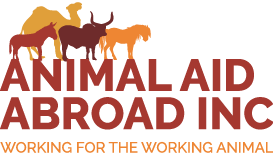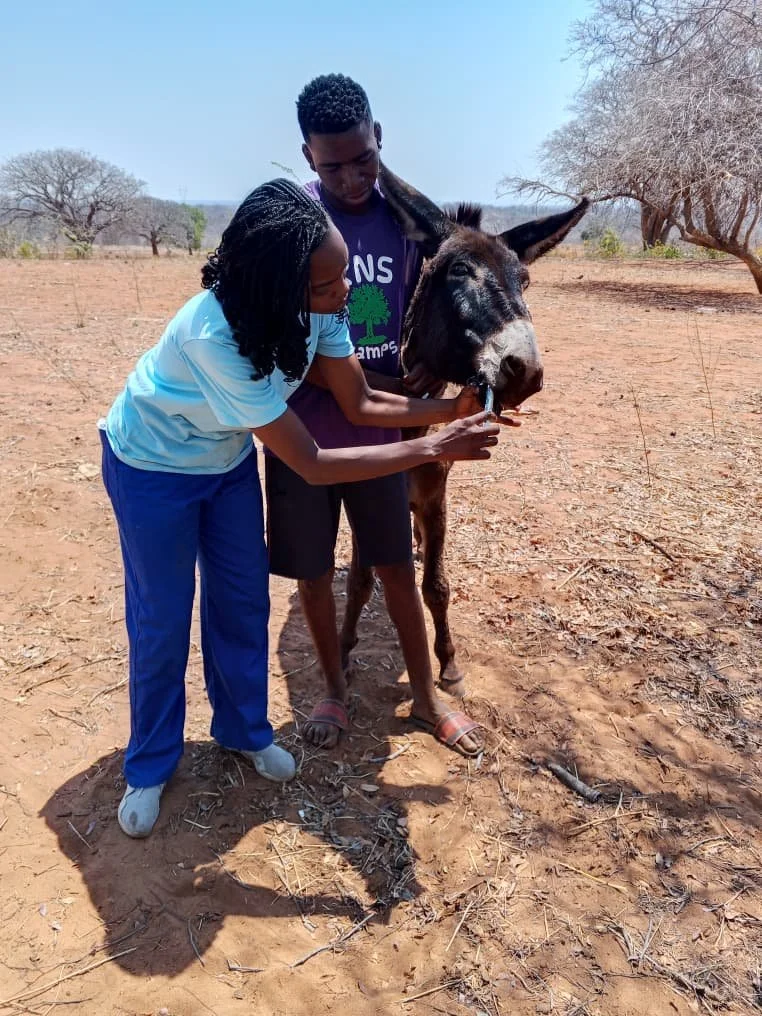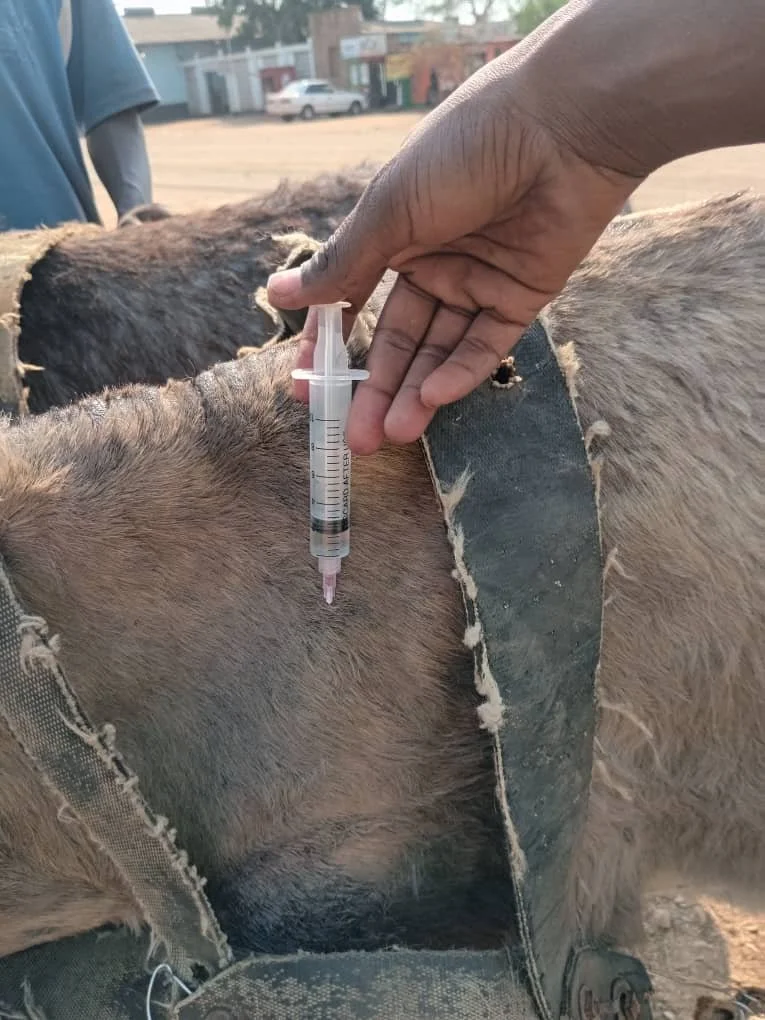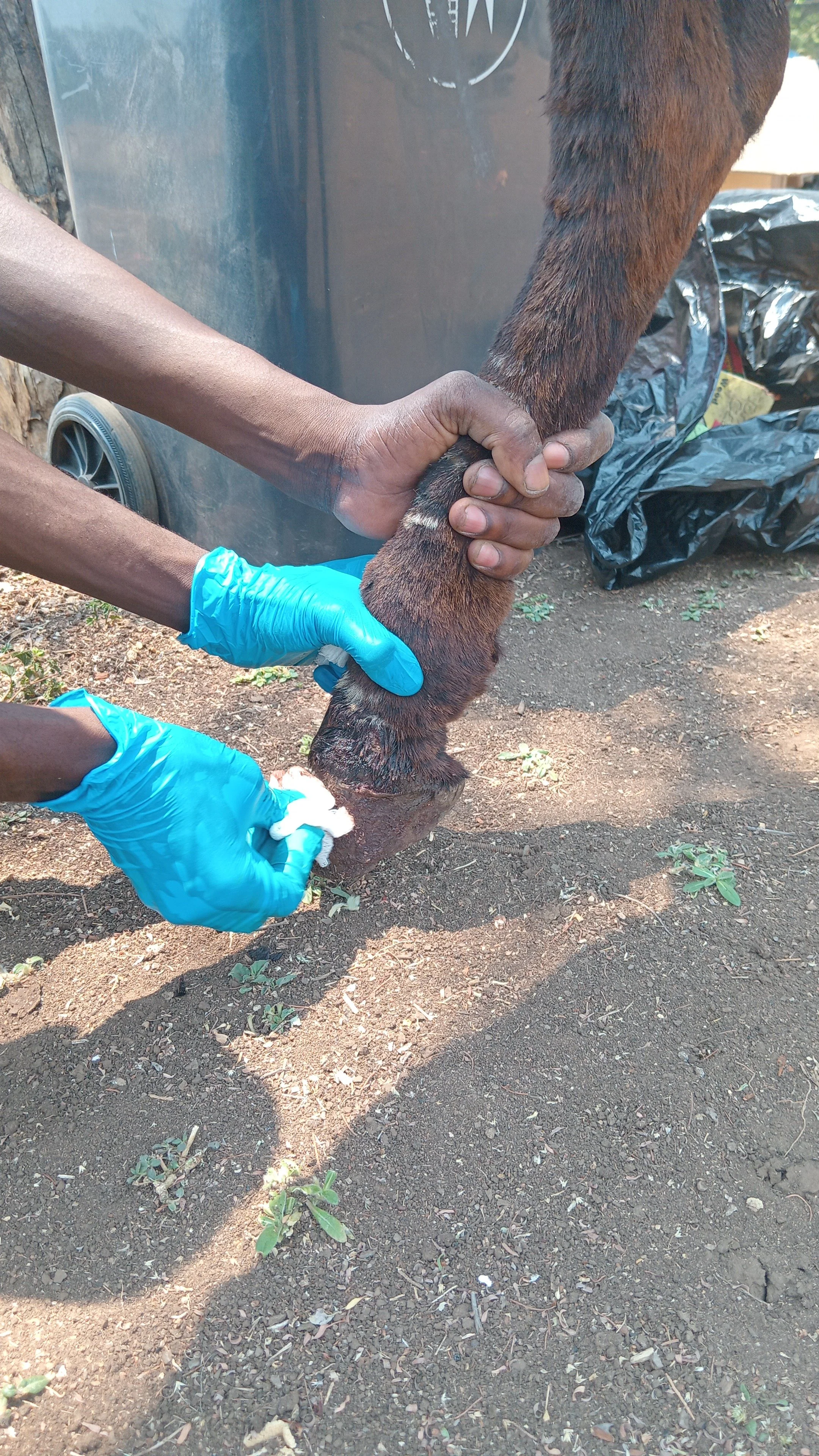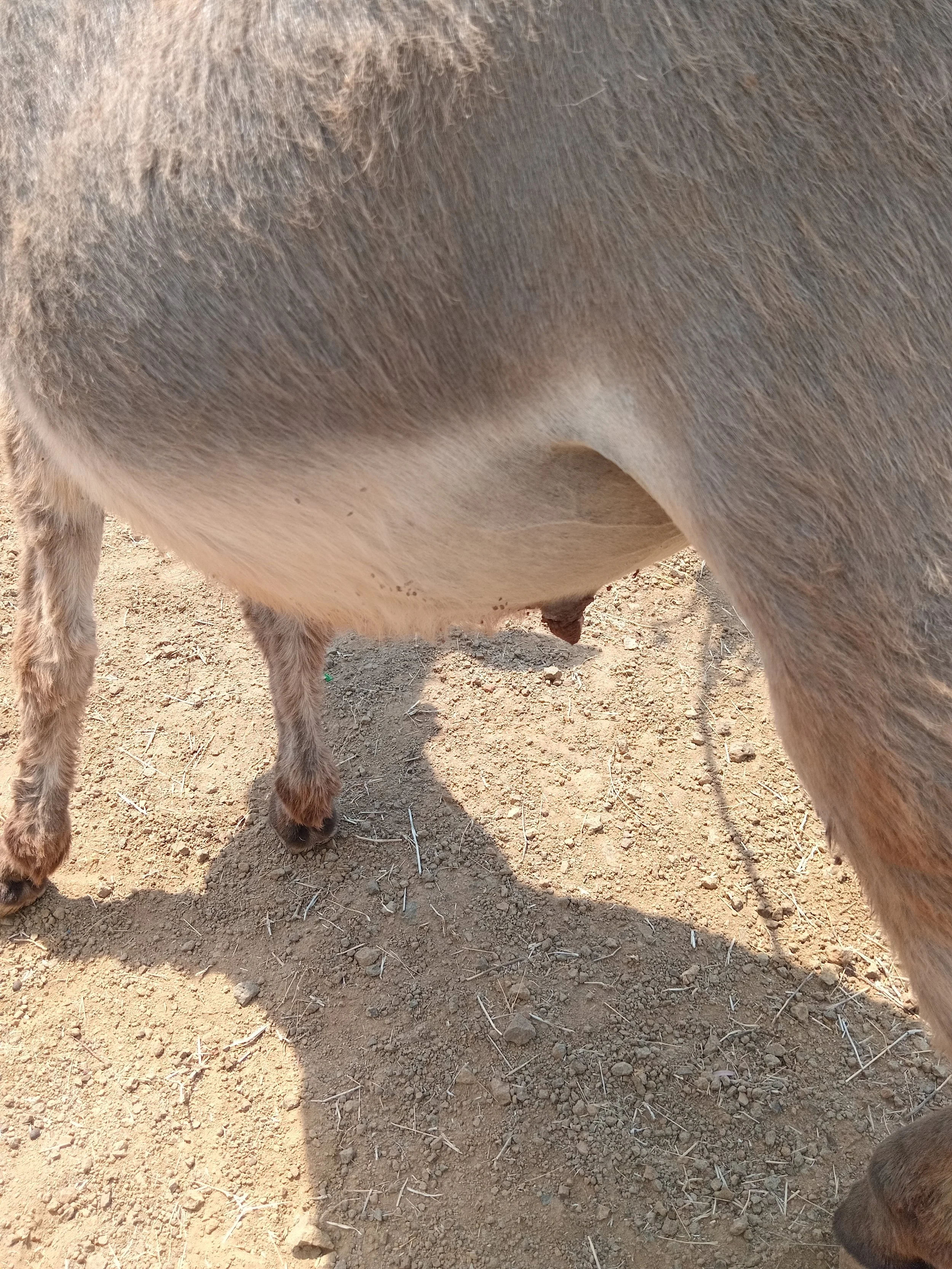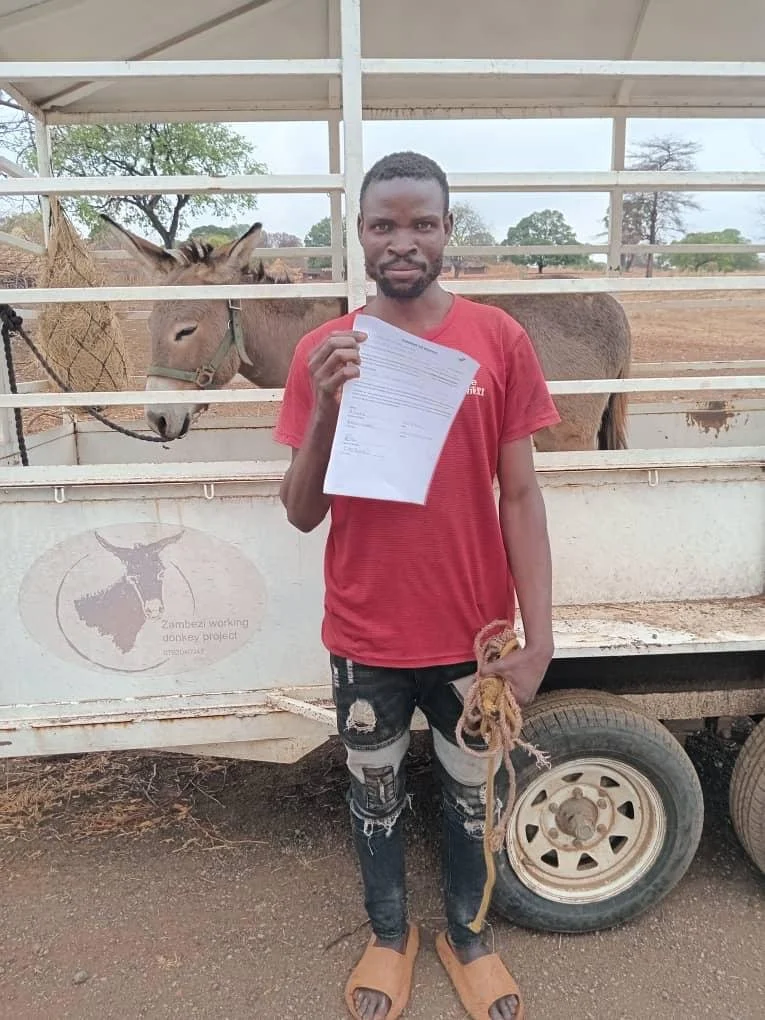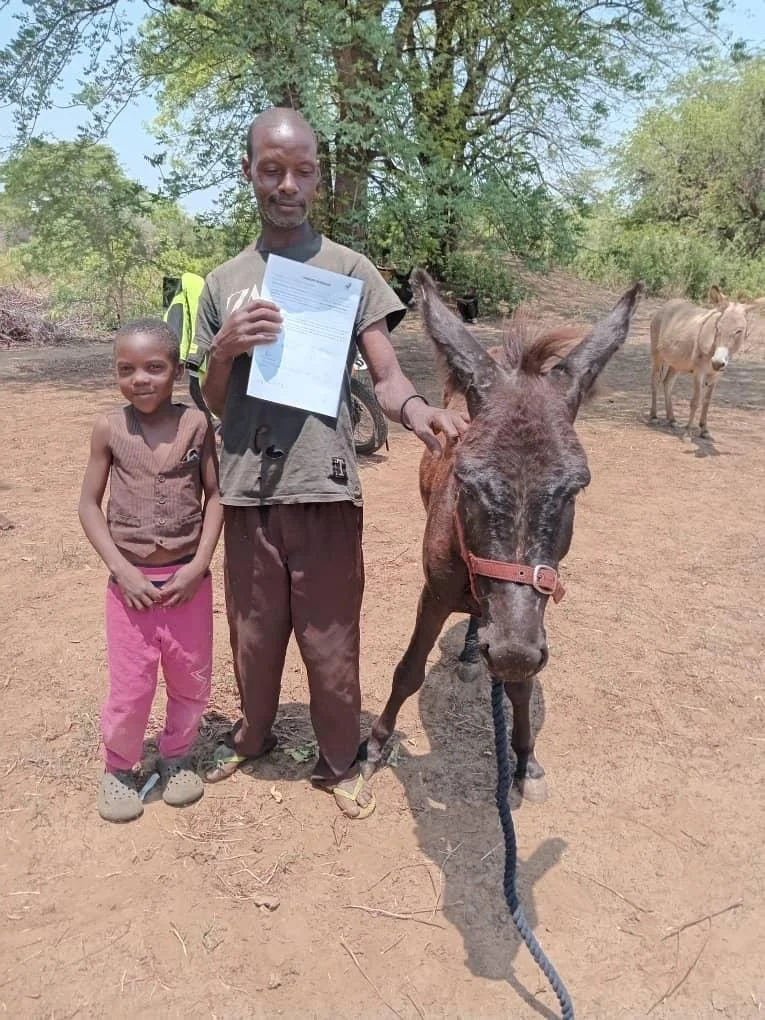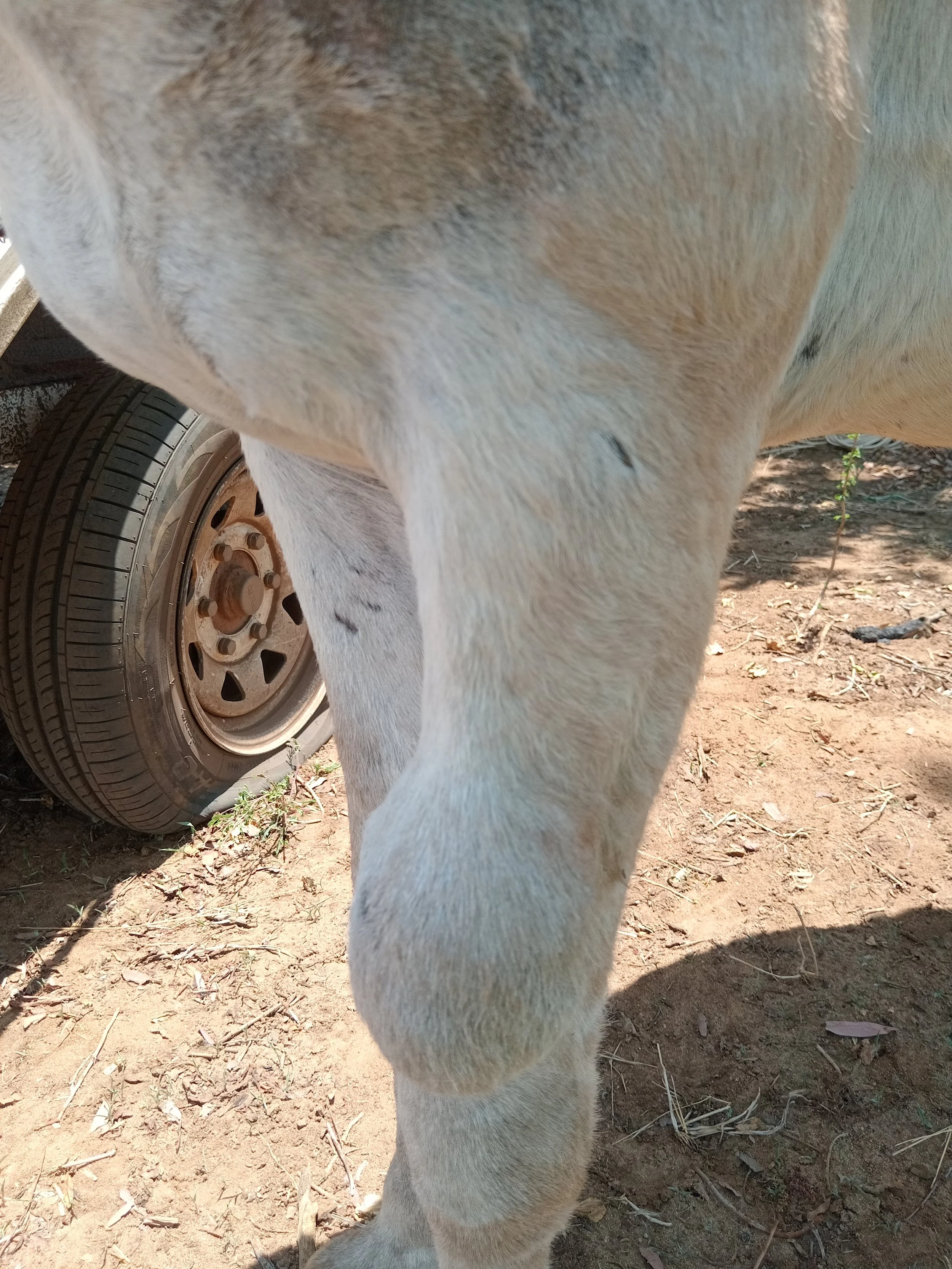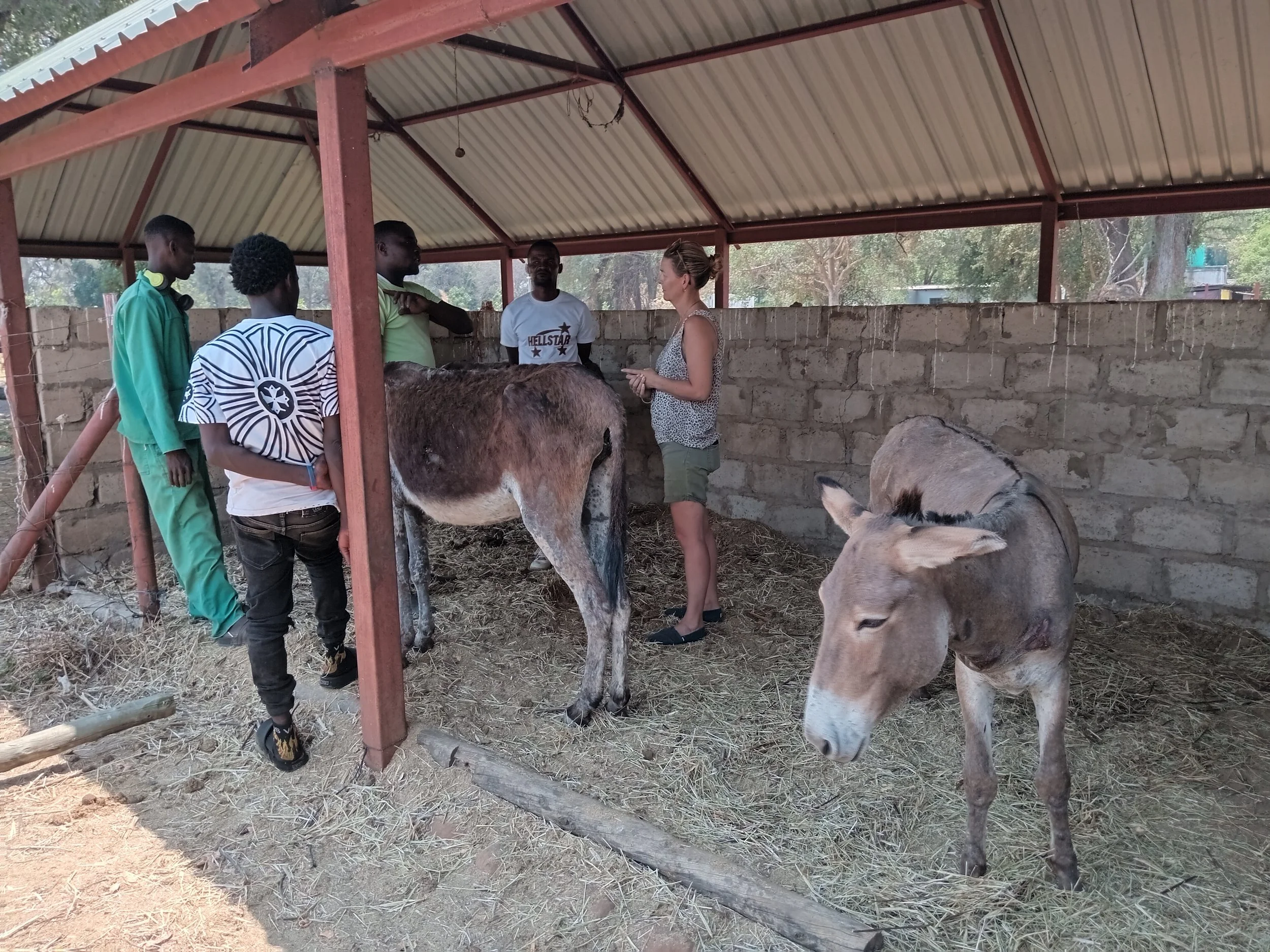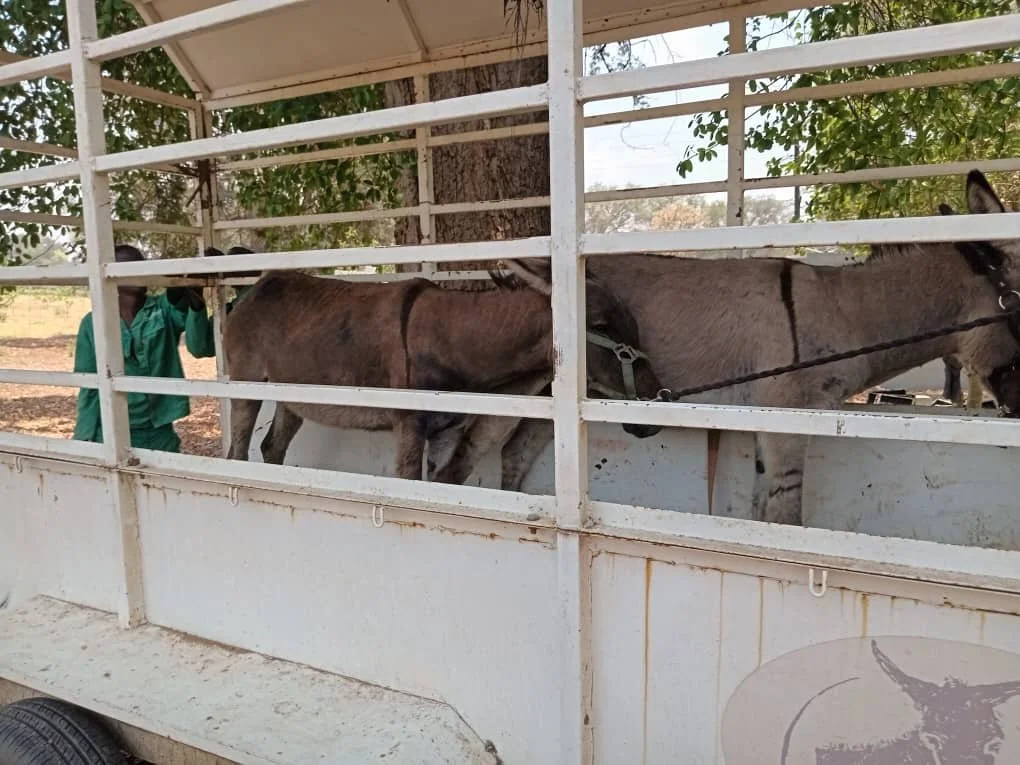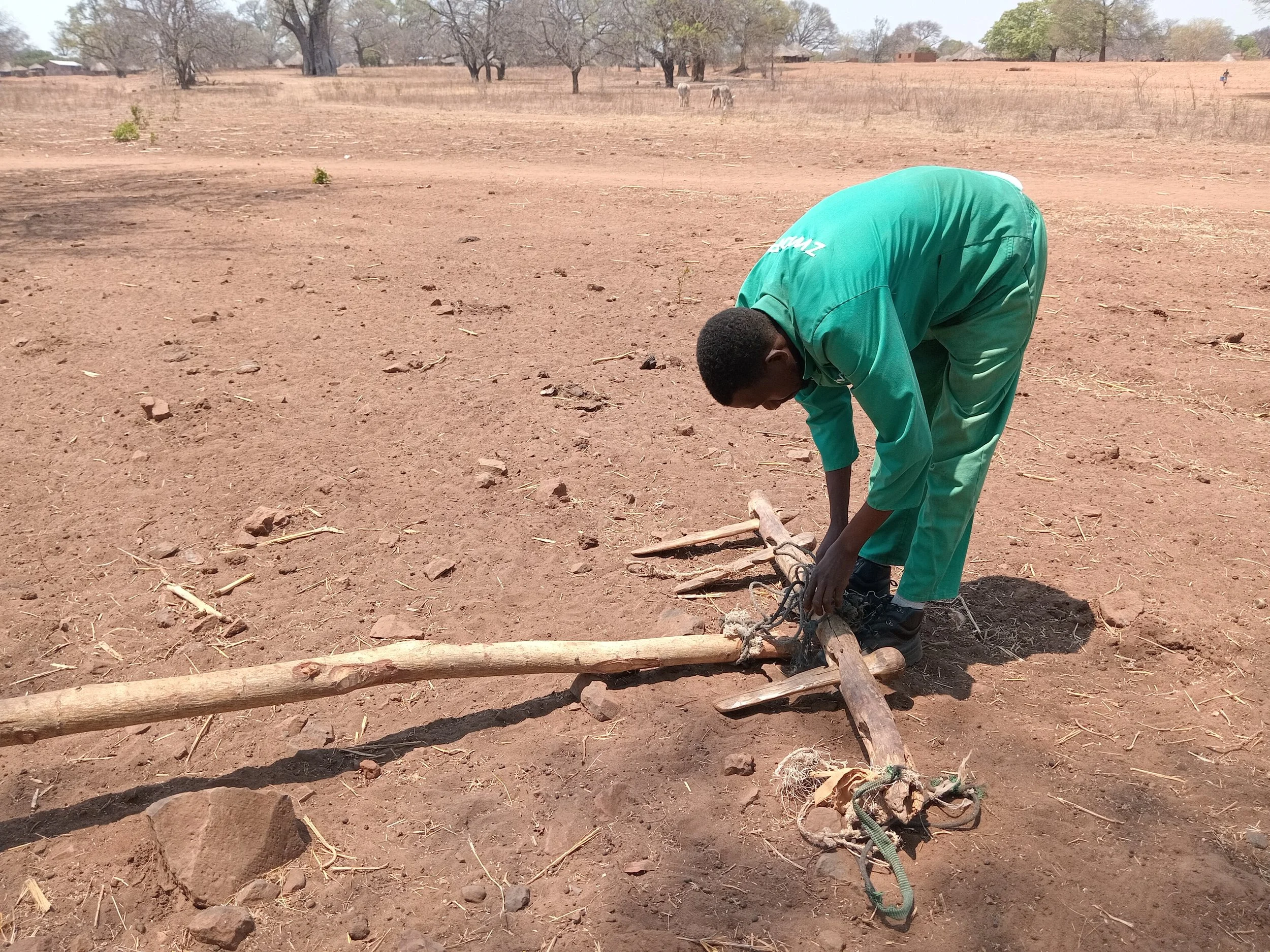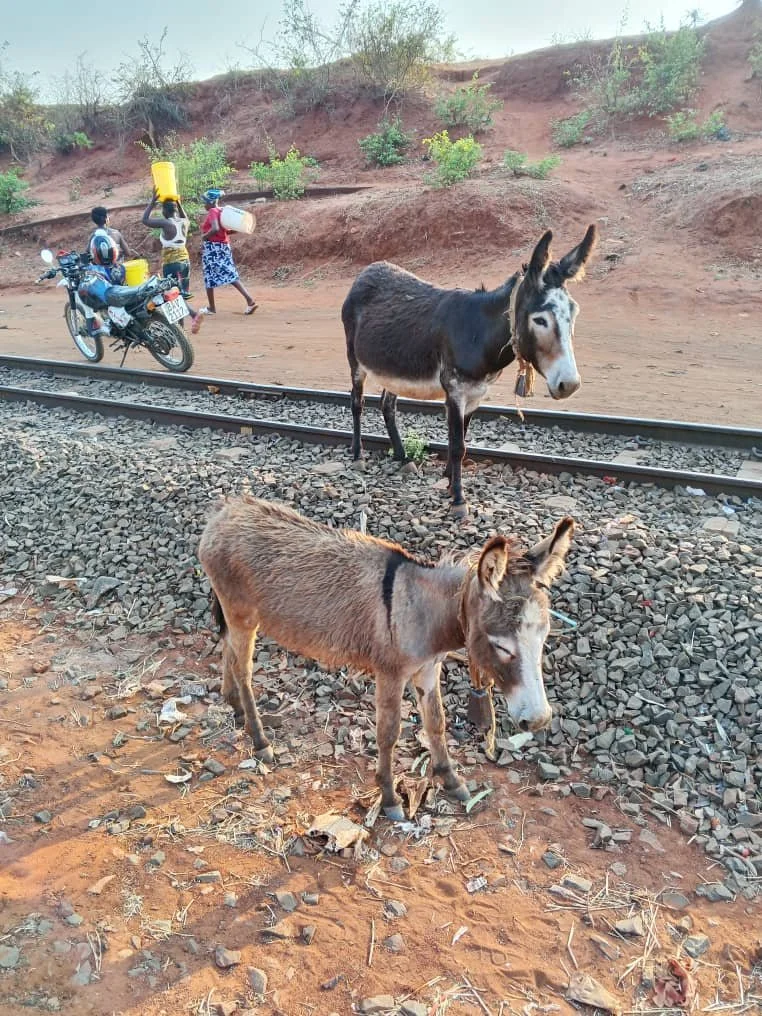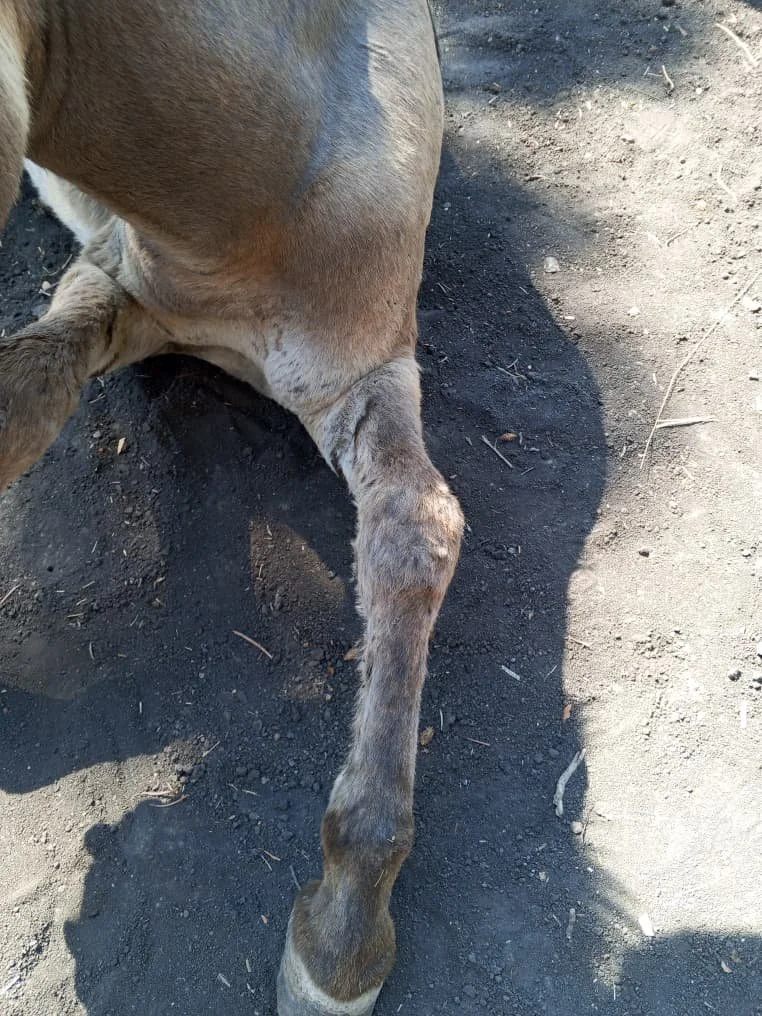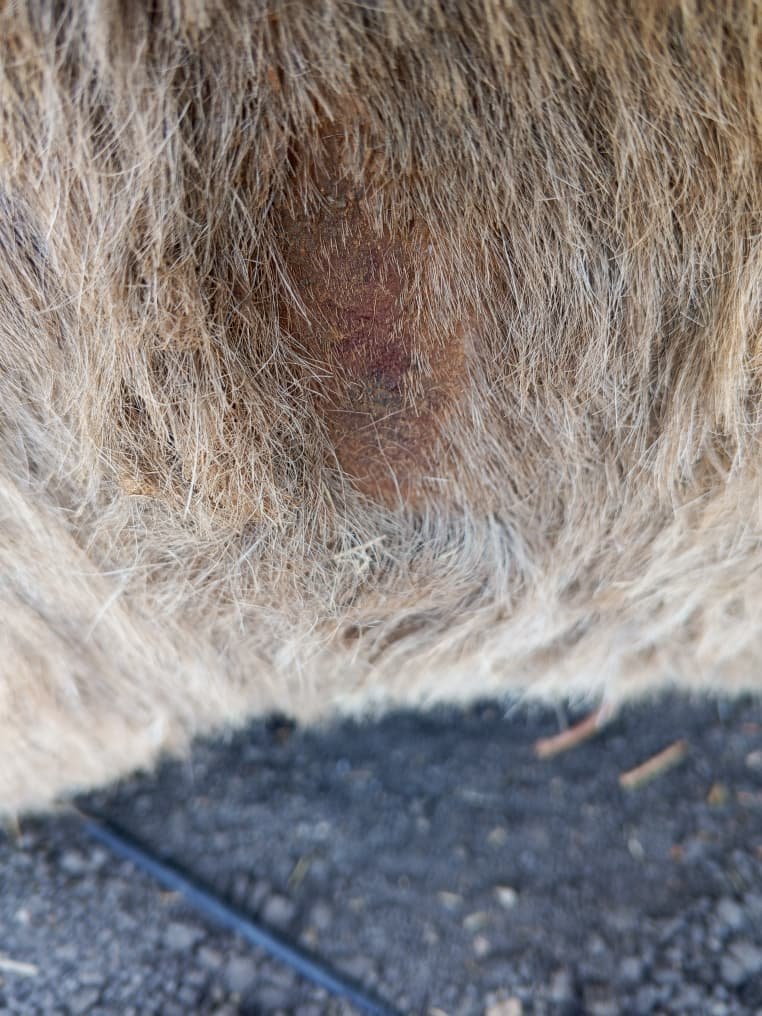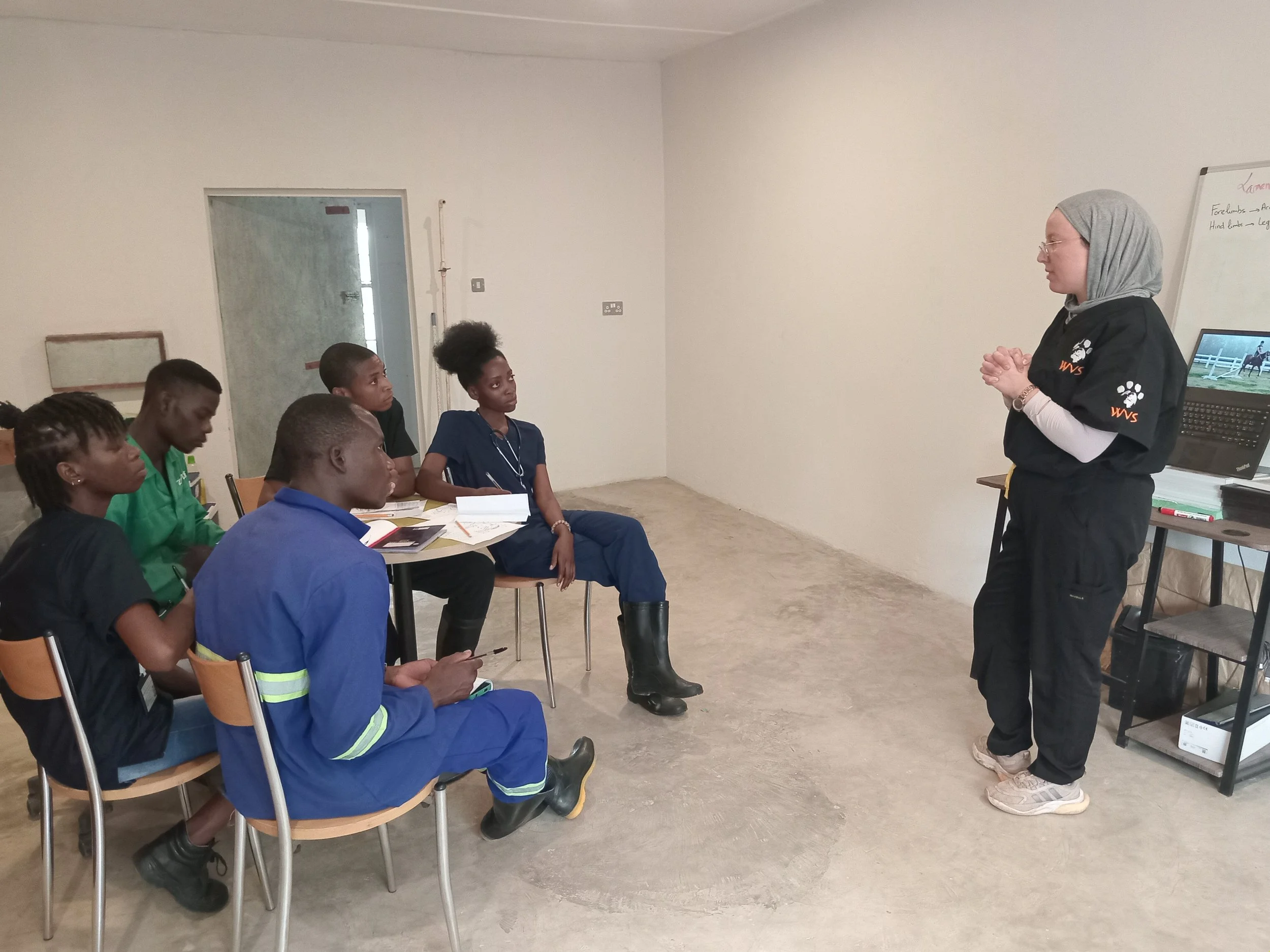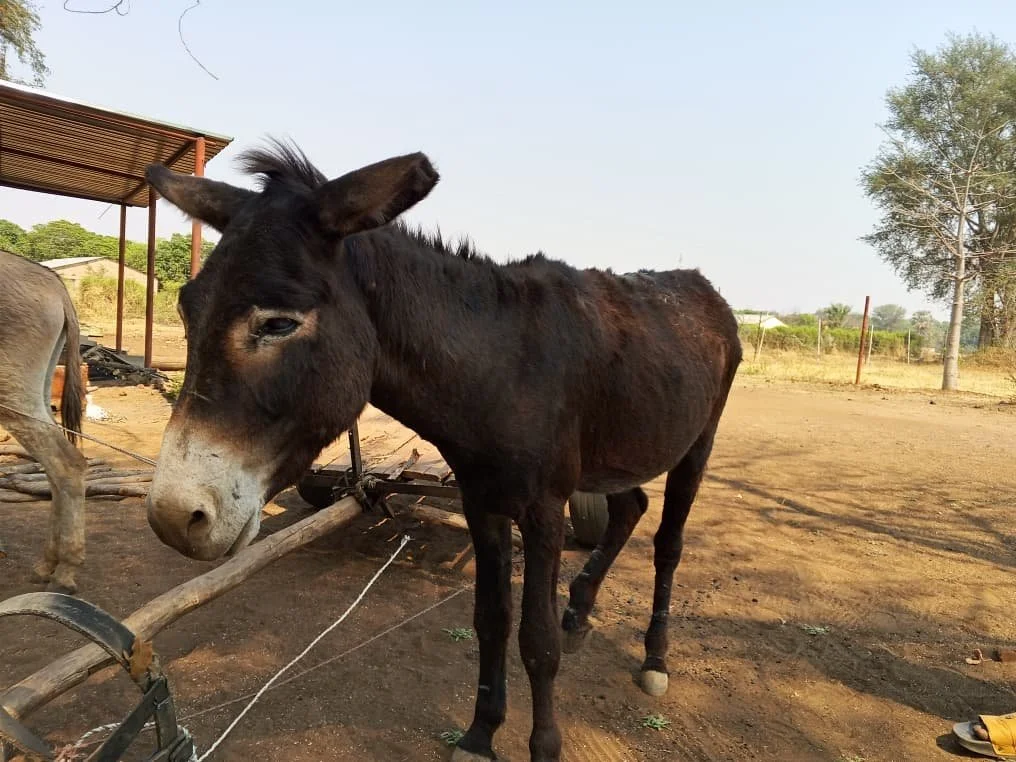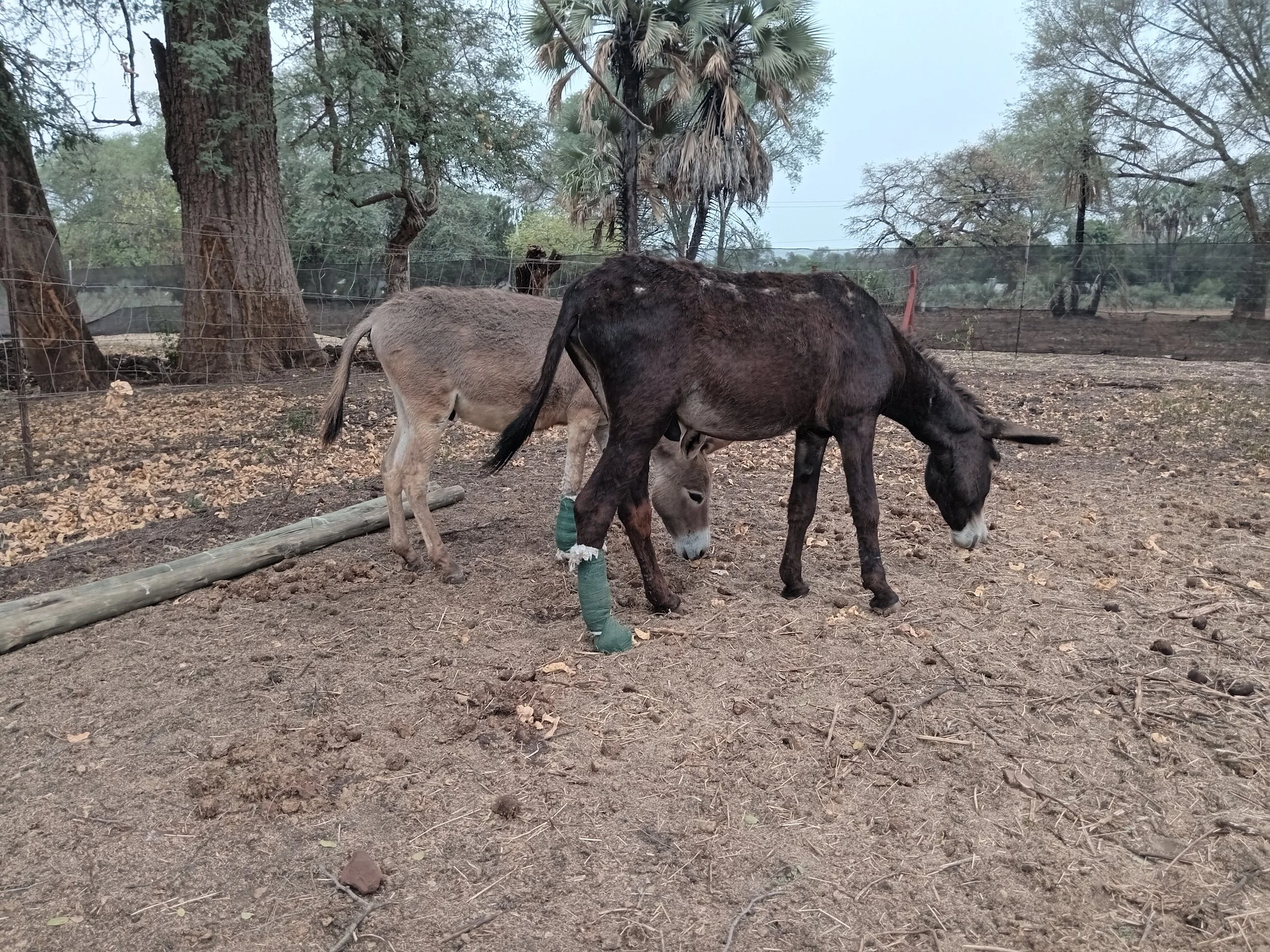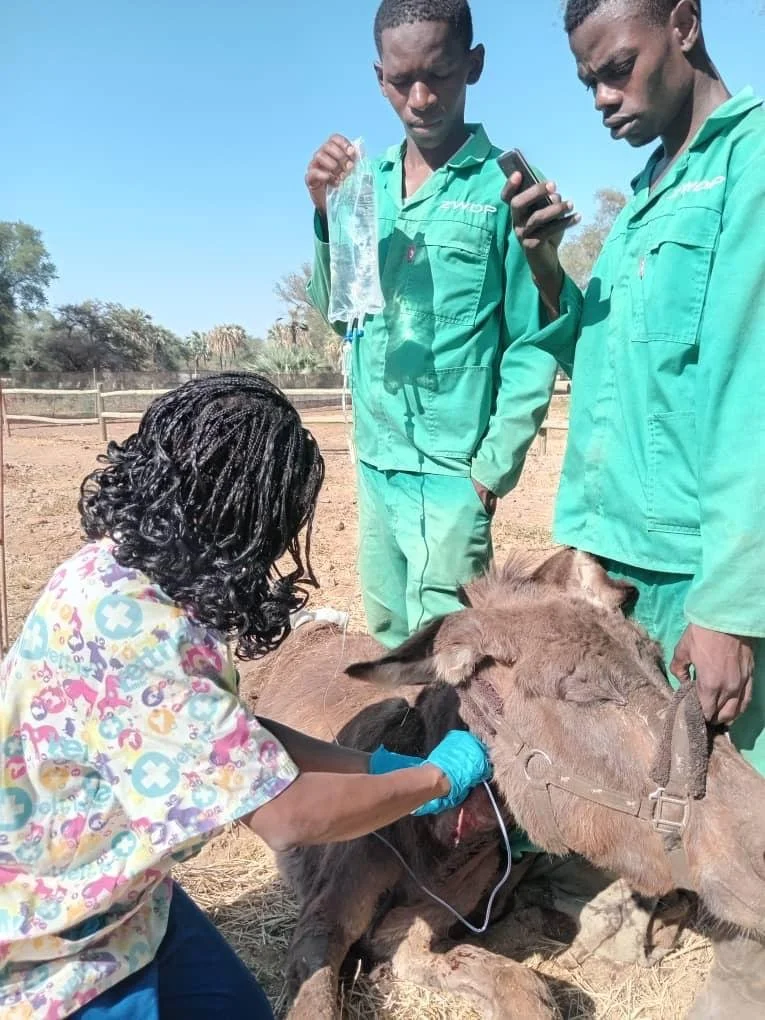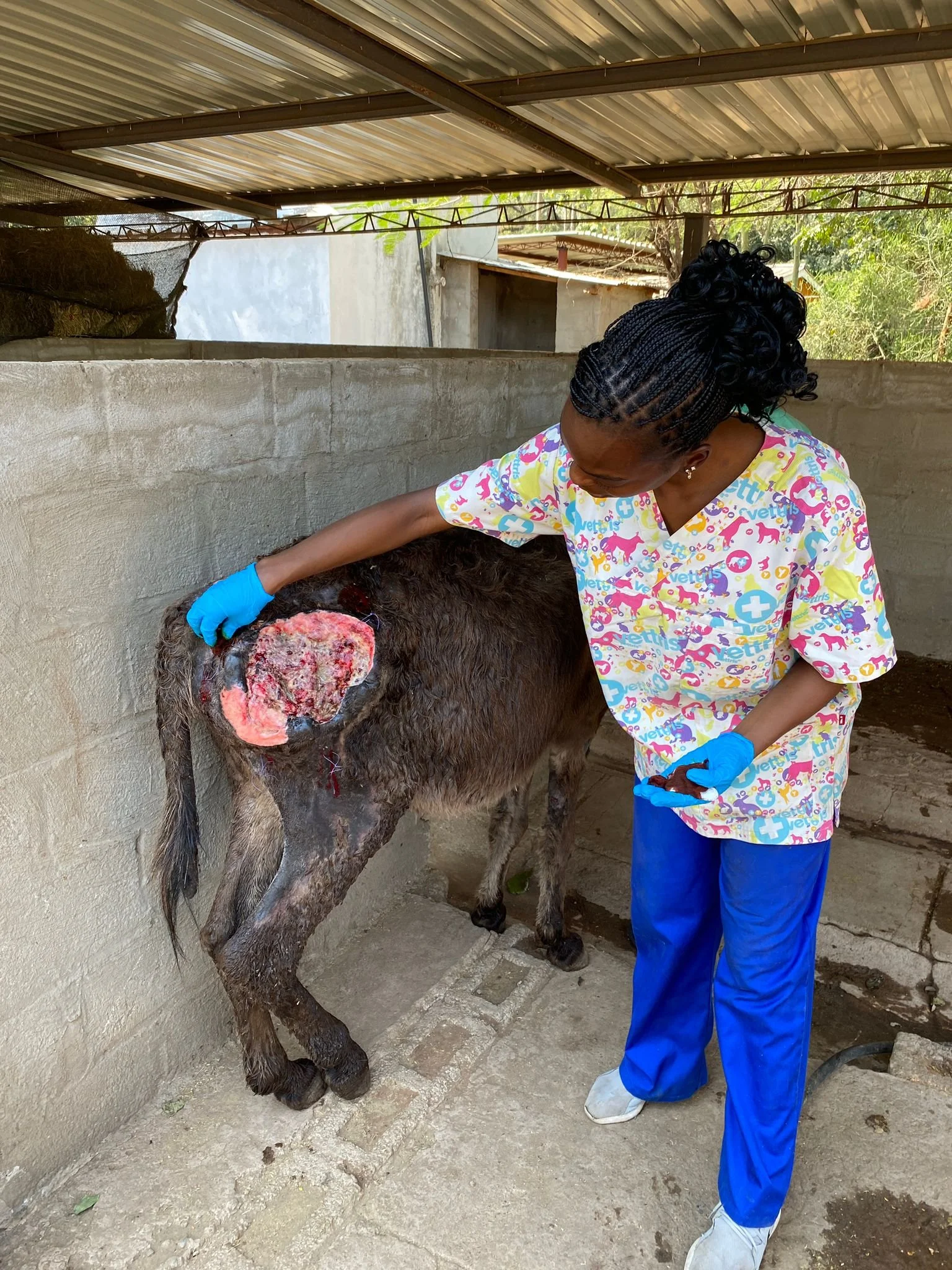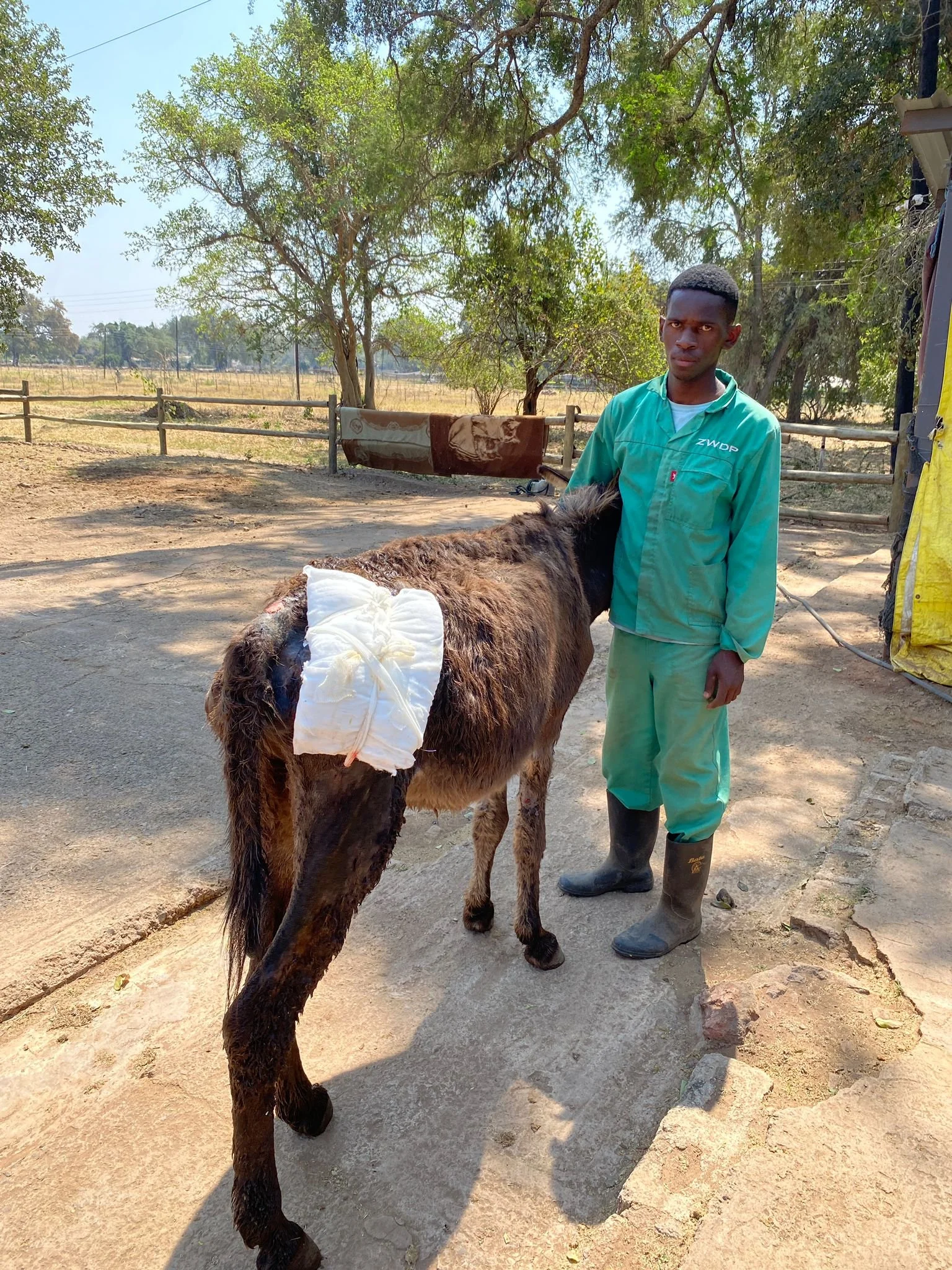Creating a More Humane Zambia, One Donkey at a Time
Thanks to your stellar support, the Zambezi Working Donkey Project (ZWDP) are gradually creating a Zambia where donkeys are treated with compassion and valued by the people who rely on them.
Last month, the ZWDP team exceeded their monthly target by over 80%, treating 266 donkeys in total.
See their full report below:
Mobile Clinics
The team conducted five mobile vet clinics, follow-up visits and field check-ups in ten villages during October. Mobile clinics were conducted in Chibule and Maunga villages, where donkeys received dipping and deworming.
A donkey called Runt from Chibule village received additional medication for labored breathing. Dr Khouloud’s examination revealed abnormal lung sounds in addition to the labored breathing. These lung sounds are known to be a symptom of asthma. The owner was hesitant to release the donkey into our care, so medication was administered and the owner was educated about how to care for his working donkey instead. We will be following up this donkey in our subsequent field visits.
On the way back from our clinic in Chibule, we met a lovely girl called Msimbi with a mass on her abdomen. Msimbi will receive surgery to excise this mass, which may be a sarcoid.
At our mobile clinic in Maunga, we met three donkeys needing respite care. The first one was a donkey called Junior, whose owner noticed a tick infestation and sprayed his donkey with a dilute concentration of an amitraz-based dip two weeks prior to our clinic. Junior’s owner lacked the knowledge that amitraz is known to be toxic to equines. Junior’s health had been worsening and when we met Junior, he was weak and recumbent. Junior immediately received fluid therapy in an attempt to flush the toxin out of his system. He was taken to Maramba Farm sanctuary where he continued on fluid therapy and medication for a couple of days before the sad decision was made to put him to sleep. Junior’s owner was advised against administering treatments to his animals and was encouraged to call the ZWDP team in future instead.
The second donkey needing additional treatment was Champion. This donkey is often lame in his left hindlimb due to a displaced patella. His patella often slips out of place and results in lameness, but then slips back into place and the lameness resolves. Champion needs long-term respite care to manage this problem and his owner agreed that he would be better off retired. The team brought Champion back to Maramba Farm where he will receive the care he needs.
We also saw another donkey named Champion during our Maunga clinic. He has a large, firm growth on his forelimb. According to the owners, this growth was present when they purchased Champion and it has not altered over the past two years. Champion has been scheduled for surgery to remove this growth.
We held three mobile clinics at Libuyu market during October. The team rescued three donkeys called Zebra, Sepa and Sadic who belonged to a previous offender. These donkeys were in very poor condition when we met them - covered in wounds and pulling an overloaded scotch cart. All three donkeys were rescued and the scotch cart was confiscated. The father and son who owned the donkeys arrived at Maramba Farm to discuss the condition of their donkeys. The father claimed his children had caused the donkeys’ poor condition. Despite this claim, he showed no empathy and displayed a lack of gratitude for the respite care they are receiving, demanding that his donkeys should be returned to him. The children will now be obliged to join educational activities - including harness making and donkey welfare programs at Maramba Farm - as one of the conditions to be met before these donkeys can be returned to them. These donkeys will not return to this family until their wounds heal and the owner’s children learn to care for working donkeys. The inconvenience of not having access to his donkeys and scotch cart during this time is also intended to serve as a lesson to the owner and make him more appreciative of all that his donkeys help him do.
Angelina and Danlop were two additional donkeys the team rescued at Libuyu market last month. These donkeys belong to a man who hired someone to work them. Unfortunately, the person working these donkeys shows no empathy for these animals. The team have previously tried to address this issue with the owner to ensure the donkeys are better cared for. However, there has been no change, so the team rescued both donkeys.
The team also confiscated an ox yoke from an owner who had previously received a set of humane harnesses at Libuyu market. We are confident he will come knocking at our workshop gates for a new set of harnesses soon, which he will be charged for.
During one of our clinics at Libuyu market, the team came across a first-time offender who had overloaded his scotch cart. When the team tried to engage him in a conversation, he seemed defensive. A gentleman passing by noticed the tension and stopped to ask what the problem was. When our Program Manager and veterinarian, Audrine, explained the situation to him, she learnt this gentleman was the area councillor of Libuyu. He spoke to the donkey owner about overloading his scotch cart and expressed concern for the animals carrying such a heavy load. The owner eventually gave in and lightened part of the load to relieve the donkeys of all the extra weight. It is fantastic to see that the ZWDP team receives unwavering support from the locals of Libuyu.
Field checks and follow-up visits were conducted in ten villages this month. We were overjoyed to see many donkeys thriving and in good condition. The team spotted a few donkeys needing veterinary care including a donkey called Naomi, who is the foal of one of our rescues from last year called Memory. Naomi had been bitten on her neck by a neighboring male donkey. She was swollen around her neck and the veterinarians on the team were concerned about the vital internal structures in the affected area. Dr Khouloud prescribed treatment for a couple of days and is confident this will help to solve the problem. We will be following Naomi up in our subsequent field checks.
In addition to treating all these donkeys at our mobile clinics, scotch carts were modified to fit humane harnesses, thereby replacing ox yokes and relieving working donkeys from these terrible wooden contraptions. Additionally, 85 donkey owners were engaged in education and eight cruel ox yokes were replaced with kinder harnesses.
Cruelty Case
During one of her many visits to Livingston, our director, Hesther, came across three donkeys being bitten and abused by children. It came to our attention that these donkeys had been driven away by these children from where their owner had left them to graze. The owner had reported his missing donkeys to the police and when our supervisor learnt about this, he quickly facilitated the return of these donkeys to their rightful owner and spoke to the children about their actions.
Many of the donkeys we come across are worked by children and are often abused. We have previously conducted animal welfare education programs in schools using funding from Animal Kind International. Situations like this remind us how much more work we have to do when it comes to educating children about caring for and being kind to animals.
Emergency Case
We received an emergency call about a donkey who had fallen into a pit in one of the villages. Thankfully, with help from the villagers nearby, the donkey was successfully rescued from the pit. However, he could not walk. Our supervisor, Emmanuel, visited the site and confirmed the donkey had suffered some minor bruises but had no broken bones. The donkey received medication and was followed up a week later. We are happy to report this donkey regained his ability to stand and walk a week after the accident.
Vet Students
At Maramba Farm, we had a group of four students from the Zambia Institute of Animal Health where they are training to be veterinary technicians. These students were invited to ZWDP for five days of training in equine medicine and surgery. Dr Khouloud trained them in the basics of equine medicine and how to assist veterinary surgeons in the field and in hospital settings. The students gained essential skills in handling, examining, diagnosing and managing equine health issues, as well as how to engage the community to improve animal welfare. The students were pleased they could learn and practice many valuable techniques. We have more student training sessions coming up, which is an initiative we implemented last year in collaboration with the University of Zambia. This collaboration will build capacity in equine and large animal veterinary care in Zambia.
Rescued Donkeys
We had 14 new rescues last month, bringing the total number of donkeys living at Maramba Farm to 33. In addition to the nine donkeys mentioned above, Luyando, Twambo, Zesco and Jack are donkeys who were permanently retired to the sanctuary recently. All our recent retirees are elderly. In addition, Luyando is blind in one eye because of cataracts and has a wound on one of her front limbs, while Zesco has a cattle hock conformation. Thanks to your support, these donkeys will live out their golden years enjoying complete leisure.
Transport, the young donkey with a fractured forelimb, has also been allowed to retire. Culture, the donkey who was hurt by a spear, healed and was returned to his owners. His owners don’t know who the perpetrators are and decided not to file a case as there was a lack of information about the suspect(s).
We were saddened to learn another donkey was stabbed after feeding in a vegetable patch not too far from Culture's village. Unlike Culture, this donkey succumbed to the injury and sadly passed away. We plan to have a community meeting in this area soon to bring a stop to animal abuse in this area.
Prescar - another donkey who was rescued with multiple wounds – has been returned to her owner. Her rightful owner explained Prescar was not in his custody on the day she was rescued, so the ZWDP team cautioned him against irresponsible donkey ownership.
The rescued herd at Maramba Farm are all doing well except for Black. Black came to us with a wound on his rump in January last year. His old age and the anatomical location of the wound prolonged healing, especially because his tail would rub against it often. The ZWDP team worked hard to help Black heal through regular wound cleaning, dressings, and protecting it from flies. When Dr Khouloud came to ZWDP, she employed a wound management and bandaging technique to help it heal better, and also trained the team how to do this.
Despite these efforts, Black began to deteriorate and after so many attempts to help his wound heal and make him feel better, the decision to put him to sleep and relieve him of further suffering had to be made. Black was very special to us and, although the team are sad he is no longer with us, we are relieved he is finally free of the suffering he experienced. In the event that another donkey comes to us with a wound in a similar area, we will know exactly what to do in future.
Thank you for your loyal support, which allows us to continue these essential programs for working donkeys in Zambia.
